Floods, fears and recovery phase: saluting helicopter heroes in NSW
12-year-old Ashley Cowan’s incredible rescue was one of 22 winch jobs the NSW Police Polair crew did in one day, saving lives in the worst floods on the NSW Mid North Coast in over 100 years
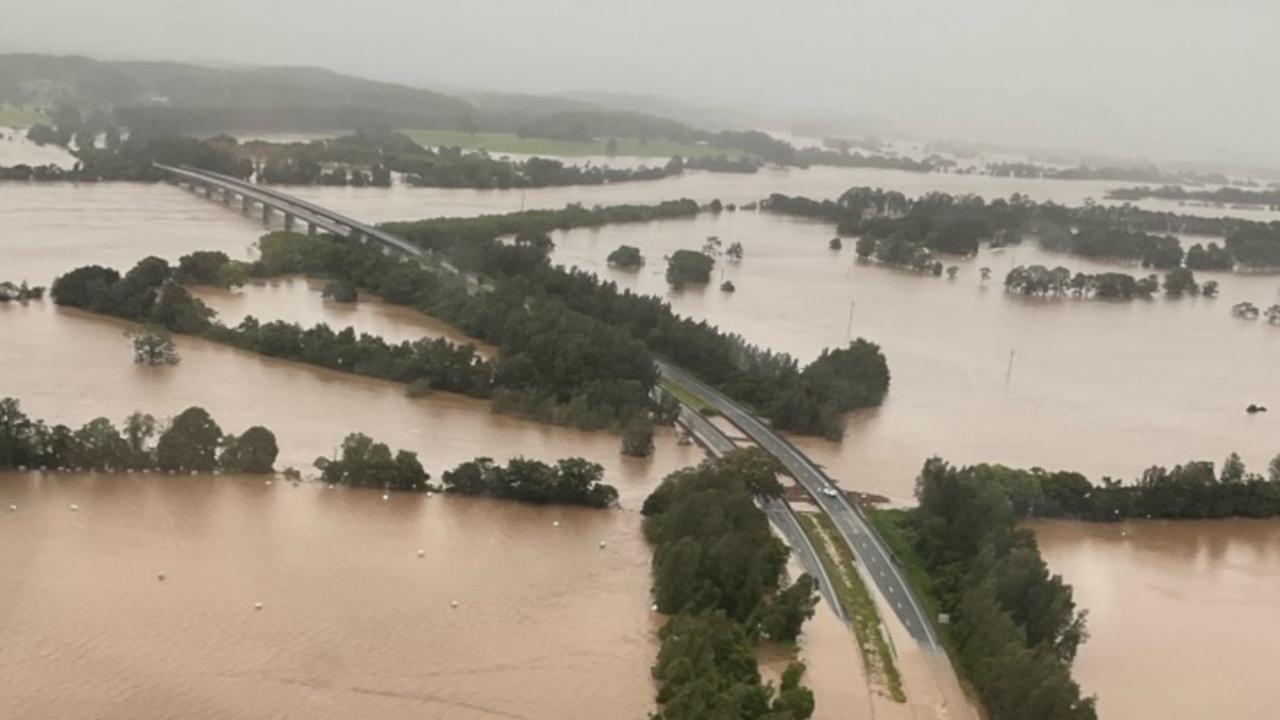
READING LEVEL: ORANGE
The look on 12-year-old Ashley Cowan’s face as the NSW Police helicopter hovered overhead said it all.
Stranded on a shed roof with her mother, brother and grandparents, with raging water surrounding their home at Glenthorne, near Taree, this chopper was their only way out.
The Cowan family’s incredible rescue was one of 22 winch* jobs the NSW Police Polair crew performed in just one day, during the worst floods on the Mid North Coast in over 100 years.
“She was terrified, but so brave,” Ashley’s mother Anna Cowan said. “The noise of the helicopter was pretty overwhelming, and the weather, it was pretty wild, but she was so brave”.
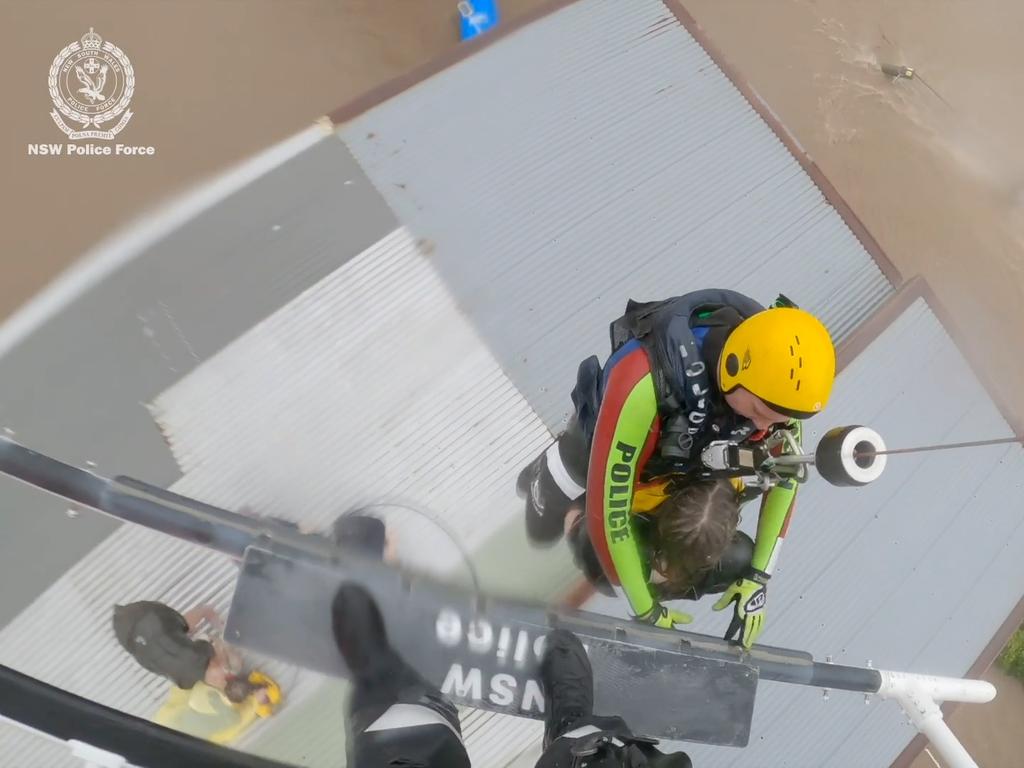
Grandfather Richard Cowan, who was also winched from the roof, said he dreads to think what may have happened if it weren’t for the efforts of the police.
“I’ve lived through two floods before, and we got about eight to 10 inches of water through the house,” Mr Cowan said.
“This one, we had over one metre of water inside … and it all happened very quickly.”
He said the police and emergency services response to the disaster were “as if it happens every day”.
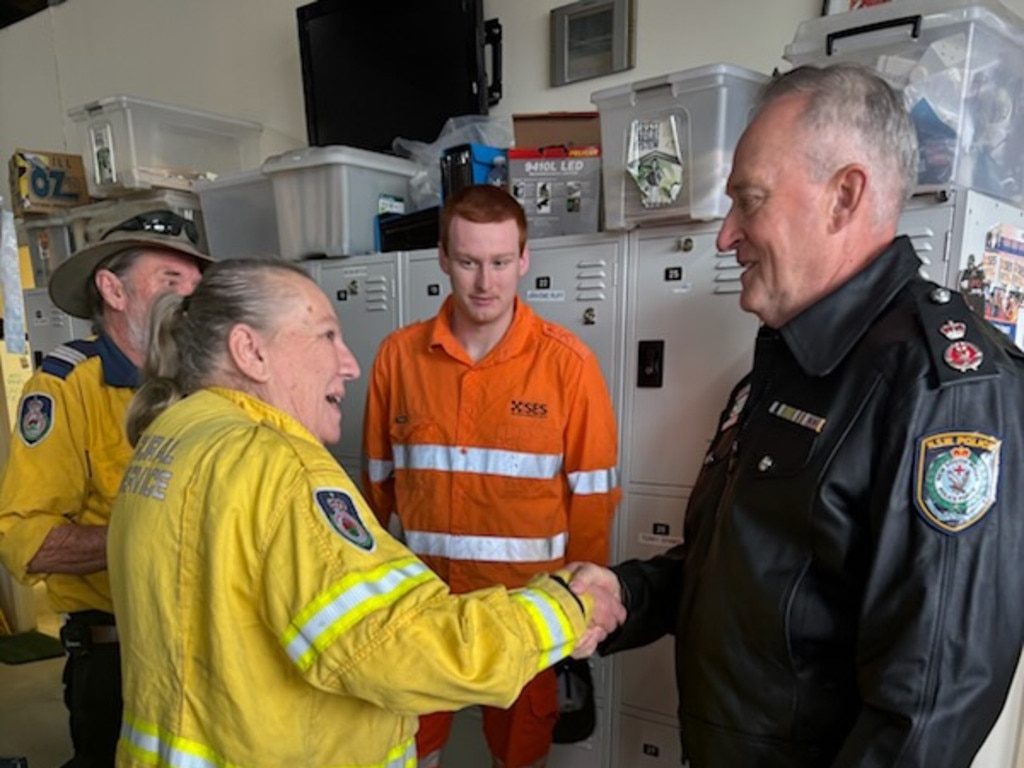
“They have all been amazing, from the helicopter rescue, to the mini bus that took us to the bowling club on high ground for food and warm clothes, to someone coming around asking who you are and where you want to go next,” Mr Cowan said.
NSW Police Deputy Commissioner Peter Thurtell, in his role as the State Emergency Operations Controller, was on the ground in Taree to oversee the clean up and recovery effort.
With him were dozens of additional cops who have headed north to help out, including the Rural Crime Prevention team, who will stay for as long as it takes to help the local communities get back on their feet.
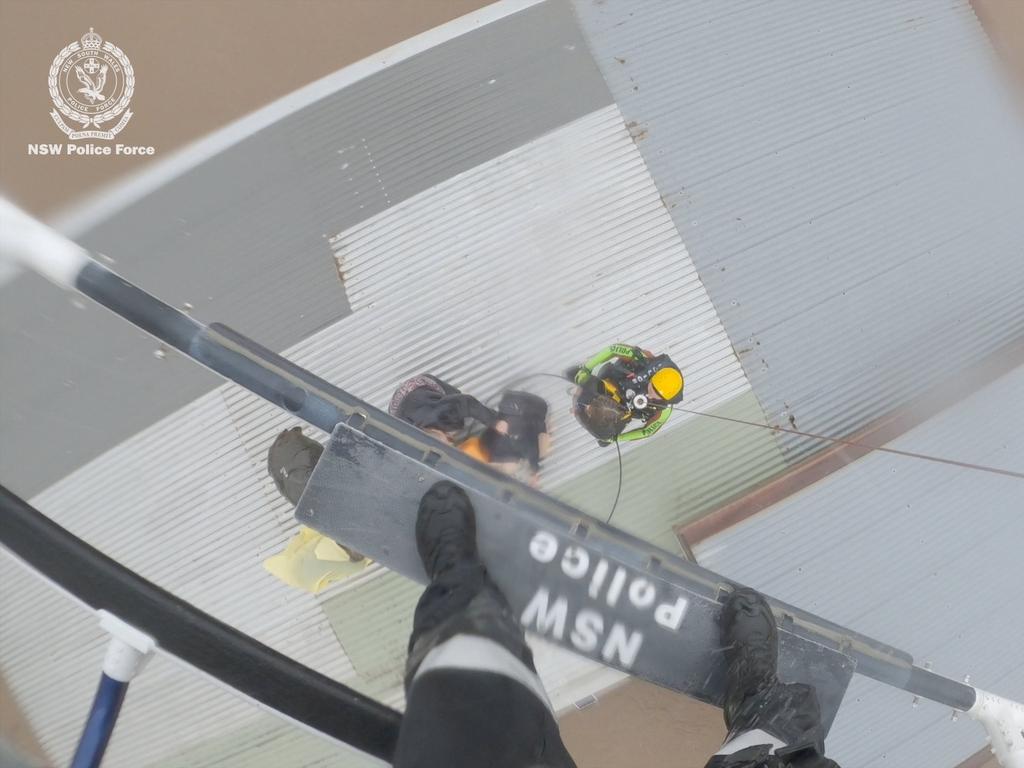
“This is high stakes* stuff … lives have been lost, livelihoods* destroyed, so many communities have been impacted by this flood disaster,” Mr Thurtell said.
“And because the water level was higher than it’s ever been before, it means more families affected, more businesses impacted … there’s areas here, like Pampoolah, that have never flooded before.”
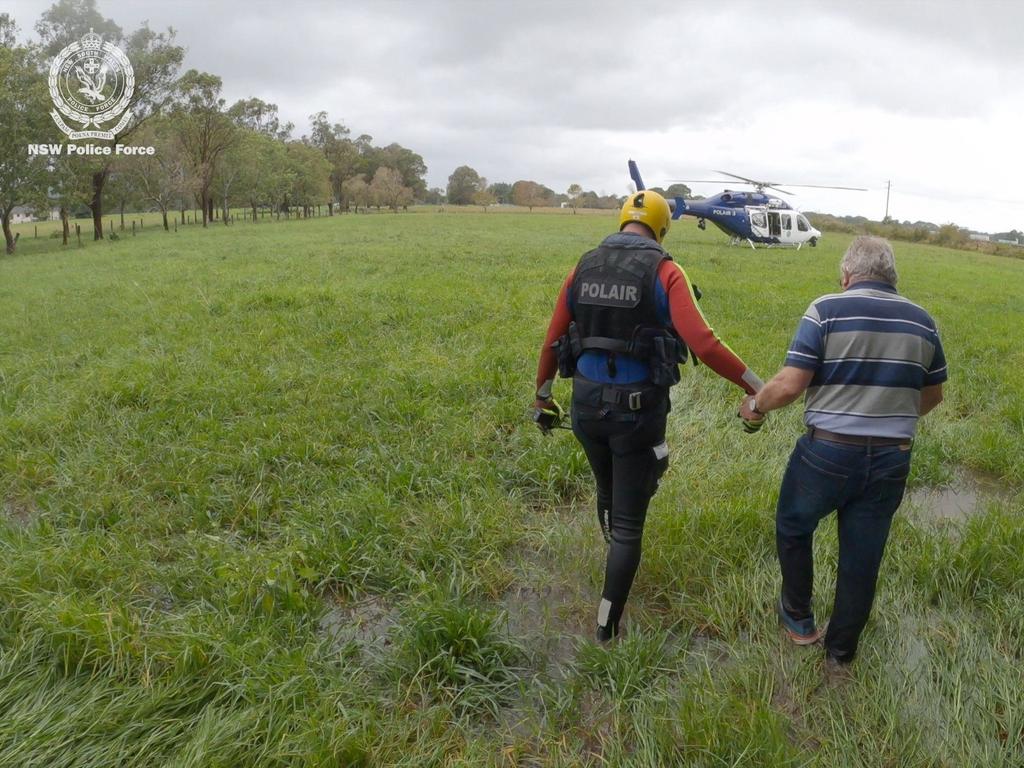
The rural crime teams will play a critical role in working with farmers to provide advice on anything from missing stock, to theft or resecuring firearms safely.
“It’s also about engaging with farmers, working with other agencies on critical issues including mental health,” Mr Thurtell said. “Until you live through a weather event of this scale you don’t know the enormity of the impact, both financially and emotionally.”
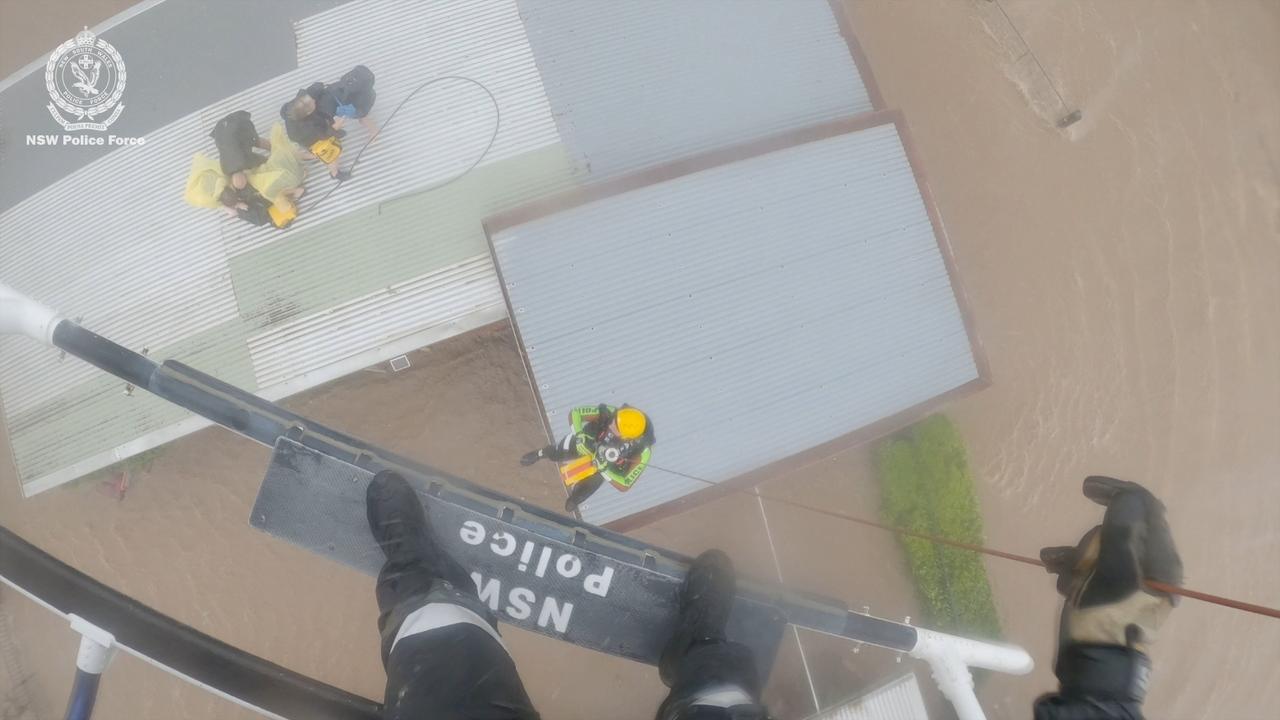
Overseeing this recovery effort was deeply personal, he said, as this was his own community for over a decade before he took up a role in Sydney.
“It’s heartbreaking to see any community in this state of despair, but yes, it hits home a bit more when you know the area so personally. I was a member of this community for 12 years,” he said.
“But I’m confident we have great teams in place, and what I’m here to make sure (of) is that while everything is in place for recovery, that these resources don’t drop off.”
POLL
GLOSSARY
- winch: machine that lifts heavy objects by turning a chain or rope around a tube-shaped device
- high stakes: a very serious situation in which there’s risk and danger
- livelihood: how someone earns money to pay for life costs like food, a place to live, clothing
EXTRA READING
Tassie devils safe in NSW floods
School closures amid state deluge
Why banana prices may go troppo
QUICK QUIZ
- Where were the Cowan family standing when they were rescued?
- How many winch rescues did the Polair team carry out that day?
- How much water did Ashley’s grandfather estimate was inside the homestead?
- The NSW Mid North Coast experienced its worst flood event in how many years?
- Why did NSW Police Deputy Commissioner Peter Thurtell say the crisis was personal?
LISTEN TO THIS STORY
CLASSROOM ACTIVITIES
1. Thanking the helpers
Police and other emergency services staff and volunteers have worked hard to help those impacted by recent floods and are there in other times of crisis. Write a letter of appreciation to thank the helpers – it could be for their work during this event or another event you are aware of or have been involved in. Be specific about what their help means to you and the wider community.
Time: allow 30 minutes to complete this activity
Curriculum Links: English
2. Extension
It is important to be prepared for emergencies and to have a plan of what you will do to stay safe in times of crisis. Having a plan can help with staying calm and making good decisions at a stressful time.
Think about what type of emergency is most relevant to you where you live (e.g. flood, bushfire, tropical cyclone) and draft a plan of what you and your family should do to stay safe. Consider the following:
- how will you stay up-to-date with the latest information?
- who can you contact for assistance?
- under what circumstances would you evacuate your home?
- where could you go and how would you get there?
- what belongings would you take, if any?
Discuss and improve your plan at home to ensure your family has the best plan possible and that all household members are informed.
Time: allow 40 minutes to complete this activity
Curriculum Links: English
VCOP ACTIVITY
Read this!
A headline on an article – or a title on your text – should capture the attention of the audience, telling them to read this now. So choosing the perfect words for a headline or title is very important.
Create three new headlines for the events that took place in this article. Remember, what you write and how you write it will set the pace for the whole text, so make sure it matches.
Read out your headlines to a partner and discuss what the article will be about based on the headline you created. Discuss the tone and mood you set in just your few, short words. Does it do the article justice? Will it capture the audience’s attention the way you hoped? Would you want to read more?
Consider how a headline or title is similar to using short, sharp sentences throughout your text. They can be just as important as complex ones. Go through the last text you wrote and highlight any short, sharp sentences that capture the audience.

